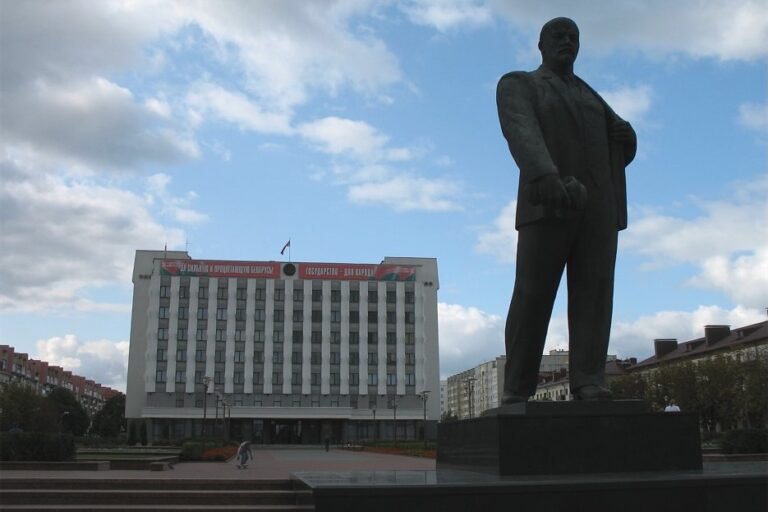(RSF/IFEX) – In a letter to President Alexander Lukashenko, RSF asked that full light be shed on the diappearance of cameraman Dmitri Zavadski. “Two officials from the public prosecutor’s office recently denounced the existence of a ‘death squad’ which was reportedly created by current highly-placed state officials and which is allegedly responsible for several disappearances, […]
(RSF/IFEX) – In a letter to President Alexander Lukashenko, RSF asked that full light be shed on the diappearance of cameraman Dmitri Zavadski. “Two officials from the public prosecutor’s office recently denounced the existence of a ‘death squad’ which was reportedly created by current highly-placed state officials and which is allegedly responsible for several disappearances, including that of Dmitri Zavadski,” noted Robert Ménard, the organisation’s secretary-general. “These serious suspicions justify the immediate launch of an inquiry into the group’s existence. We trust that Belarusian police and judicial authorities will accord their full attention to these accusations, which could be of great importance to the inquiry into Dmitri Zavadski’s disappearance,” added Ménard.
According to information collected by RSF, in a press release issued on 11 June 2001, two members of the Belarusian public prosecutor’s office, Dmitri Petrushkevic, who oversees the Zavadski case, and Oleg Slutshev accused Public Prosecutor Viktor Sheiman and assistant director of the presidential administration Yuri Sivakov of having created a “death squad” in 1996, when they were Security Council secretary and minister of the interior, respectively. At first, the group was reportedly charged with eliminating crime lords, before receiving more “political” assignments. The two public prosecutor’s office officials claim that the group’s involvement in journalist Zavadski’s disappearance could be established through DNA testing of a blood stain found in the trunk of the vehicle of one of the group’s assumed members. A spokesperson from the Belarusian public prosecutor’s office characterised the accusations as “absurd.”
On 7 July 2000, Zavadski disappeared at the Minsk airport. He had gone there to greet one of the Russian station ORT’s directors, Pavel Sheremet, upon the arrival of his flight. His vehicle was found in the airport parking lot. Zavadski had left state television in 1996 to work for ORT, against the Belarusian authorities’ wishes. A former personal cameraman to the president, the journalist was imprisoned for two months in 1997, along with an ORT colleague, following a report on the weakness of Belarusian security arrangements along the border with Lithuania. Since the start of the case, some of the journalist’s colleagues have accused the Belarusian security services of being behind his disappearance. On 11 May, the Belarusian authorities announced the arrest of several members of a gang who are suspected of having kidnapped Zavadski. The suspects are believed to have carried out the abduction on behalf of the Russian far-right movement UNR (Russian National Unity). The two public prosecutor’s office officials who revealed the “death squad”‘s possible existence suggested that the official results of the inquiry into the journalist’s disappearance were “turned into a farce” by the authorities.


